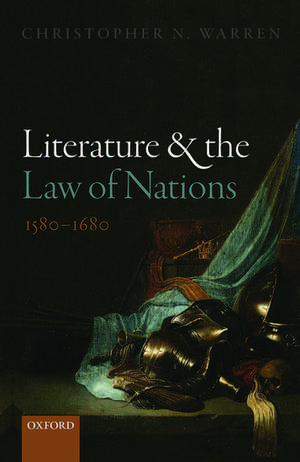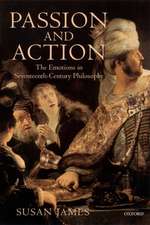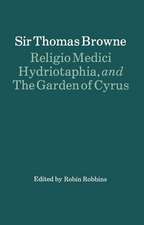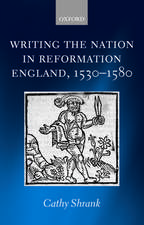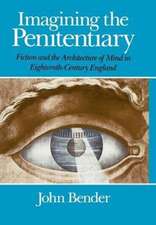Literature and the Law of Nations, 1580-1680
Autor Christopher N. Warrenen Limba Engleză Hardback – 28 mai 2015
| Toate formatele și edițiile | Preț | Express |
|---|---|---|
| Paperback (1) | 243.98 lei 10-16 zile | |
| OUP OXFORD – 28 ian 2020 | 243.98 lei 10-16 zile | |
| Hardback (1) | 687.55 lei 31-37 zile | |
| OUP OXFORD – 28 mai 2015 | 687.55 lei 31-37 zile |
Preț: 687.55 lei
Preț vechi: 944.19 lei
-27% Nou
Puncte Express: 1031
Preț estimativ în valută:
131.60€ • 135.62$ • 111.10£
131.60€ • 135.62$ • 111.10£
Carte tipărită la comandă
Livrare economică 20-26 februarie
Preluare comenzi: 021 569.72.76
Specificații
ISBN-13: 9780198719342
ISBN-10: 0198719345
Pagini: 304
Ilustrații: 9 black-and-white halftones
Dimensiuni: 163 x 241 x 23 mm
Greutate: 0.6 kg
Editura: OUP OXFORD
Colecția OUP Oxford
Locul publicării:Oxford, United Kingdom
ISBN-10: 0198719345
Pagini: 304
Ilustrații: 9 black-and-white halftones
Dimensiuni: 163 x 241 x 23 mm
Greutate: 0.6 kg
Editura: OUP OXFORD
Colecția OUP Oxford
Locul publicării:Oxford, United Kingdom
Recenzii
Christopher Warren has made the sensible and helpful decision to put the two together and write about the relationship between the establishment of international law in the seventeenth century and the development of literary forms and types... A rewarding book.
A major achievement. Warren offers a magisterial account of how early modern literary genres inflected the discourses of modern international law.
This particular book is highly recommendable to anyone who would like to understand the exact philosophy shaping the early modern communities within the New World.
Warrens detailed and tightly-reasoned book aims primarily at an expanded intellectual history, an enterprise in which it is hugely successful; its interest in recovering traces of contemporary legal debates within literary and non-literary texts leads it to a reconstruction of early modern sense-making which sometimes borrows methodology from the history of reading. Warrens sources for excavating buried meanings include annotated copies of early texts and passages copied into commonplace books. Exploiting the full range of such resources might depend on the participation of book historians among the scholars Warren has invited to join him in the production of a new literary history of international law.
learned, densely packed, and assiduously referenced ... Literature and the Law of Nations is an excellent piece of scholarship, exposing the intersecting worlds of literature and law, and revealing that the early modern was considerably (and admirably) more connected along these lines than is the contemporary world.
This brilliantly conceived and executed study of the principles and function of the ius gentium demonstrates how it has contributed to what we now recognize as the basis for our present international law ... Warren's history could hardly be more timely.
This book is a welcome development in law and literary studies, or law and humanities scholarship more broadly ... Warren makes a persuasive case for literature's formative role in the development of international law ... illuminating.
A major achievement. Warren offers a magisterial account of how early modern literary genres inflected the discourses of modern international law.
This particular book is highly recommendable to anyone who would like to understand the exact philosophy shaping the early modern communities within the New World.
Warrens detailed and tightly-reasoned book aims primarily at an expanded intellectual history, an enterprise in which it is hugely successful; its interest in recovering traces of contemporary legal debates within literary and non-literary texts leads it to a reconstruction of early modern sense-making which sometimes borrows methodology from the history of reading. Warrens sources for excavating buried meanings include annotated copies of early texts and passages copied into commonplace books. Exploiting the full range of such resources might depend on the participation of book historians among the scholars Warren has invited to join him in the production of a new literary history of international law.
learned, densely packed, and assiduously referenced ... Literature and the Law of Nations is an excellent piece of scholarship, exposing the intersecting worlds of literature and law, and revealing that the early modern was considerably (and admirably) more connected along these lines than is the contemporary world.
This brilliantly conceived and executed study of the principles and function of the ius gentium demonstrates how it has contributed to what we now recognize as the basis for our present international law ... Warren's history could hardly be more timely.
This book is a welcome development in law and literary studies, or law and humanities scholarship more broadly ... Warren makes a persuasive case for literature's formative role in the development of international law ... illuminating.
Notă biografică
Christopher N. Warren is an Assistant Professor of English at Carnegie Mellon University in Pittsburgh, Pennsylvania, USA, where he teaches courses on law, literature, and the humanities. Warren's scholarship has appeared in English Literary Renaissance, The Seventeenth Century, and the European Journal of International Law. Prior to Carnegie Mellon, Warren trained at the University of Oxford before a receiving a Harper-Schmidt fellowship in the University of Chicago's Society of Fellows.
